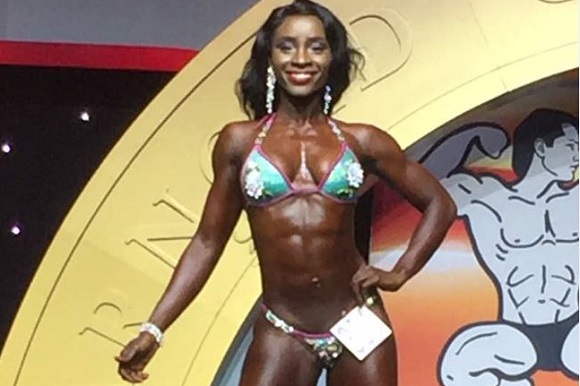
Habits that are making you lose muscle, not fat
You know the routine: losing weight means chowing down on fewer calories than you’re burning. But if you’re not smart about it, even the best-intentioned plans can backfire.
Fortunately, there are steps you can take to minimise muscle loss. To keep your body’s calorie-burning machine revved, steer clear of these six habits that make you more likely to lose muscle.
1. YOU'VE CUT TOO MANY CALORIES
Eating fewer calories than it takes to maintain your basal metabolism (i.e. the minimum energy your body needs at rest for things like breathing and keeping your organs going) puts your body into starvation mode, where it burns both fat and muscle for fuel.
'Your body’s main goal is to keep you alive, so it’s going to make sure that you have enough energy for basic functions,' says Matheny.
'When you’re not taking in enough calories, your body takes from stored carbs (glycogen), stored fat, and protein from muscle,' explains Nick Clayton, C.S.C.S., the personal training program manager for the National Strength and Conditioning Association. Exactly how many calories is too few depends on your current weight, although no one should dip below 1,000 calories.
The solution: To maximise fat loss and minimise muscle loss, Clayton recommends a deficit of between 500 to 1,000 calories from your current daily intake, with about half coming from calories you’ve cut and
2. YOU'RE NOT GETTING ENOUGH PROTEIN
Weight loss isn’t just about how much you eat – it’s about what you put in your mouth, too. A 2016 study found that when people went on a low-calorie diet for four weeks, those who ate more protein (2.4 vs. 1.2 grams per kilogram of body weight) lost 27
That’s because the complete protein found in foods like eggs, poultry, dairy, and meats offers all nine of the essential amino acids your body uses to build and maintain muscle. 'If you’re not getting enough protein, you’re not giving your body the building blocks to build muscle efficiently. If you’re losing weight, you’ll lose even more muscle,' says Matheny.
The solution: For dieters, Clayton suggests 1.6 grams of protein per kilogram of body weight (or about 0.7 grams per pound). If you weigh 120 pounds, you’d aim for 80 to 90 grams of protein daily – that’s about one-third of your total daily
3. YOU'RE NOT LIFTING WEIGHTS
To maintain muscle, your body needs a push. 'When you’re not stimulating your muscle, your body won’t build it,' says Matheny. 'If you’re on a really low-calorie diet and not resistance training, you definitely won’t add muscle, and you may lose some.'
Indeed, one small 2014 study found that when obese people went on a diet, those who resistance trained lost about the same amount of weight overall as those who weren’t lifting – and they lost half as much muscle (0.9 vs. 2 kg).
In fact, lifting weights might actually be a better long-term fat-blaster than cardio: a 2015 Harvard study of more than 10,500 people found that over 12 years, people who weight trained lost about twice as much belly fat (0.33 cm vs. 0.67 waist circumference) as those who just did cardio.
The solution: To see benefits, Clayton suggests fitting in one to two intense weight-lifting sessions per week incorporating mostly full-body moves like squats, lunges, and pushups. Use as much weight as you can handle and work to exhaustion for two to three sets of eight to 12 reps each.
4. YOU'RE NOT REFUELLING POST-WORKOUT
Refuelling right after you work out is as important as the weights you lift. 'If you’re not eating after workouts, there’s a higher chance you won’t recover. And if you’re not repairing the muscle you broke down, you’ll lose it,' says Matheny. The longer you wait to munch, the less efficient and effective
The solution: Matheny says if you’ve worked out moderately for at least 45 minutes, you should down about 20 grams of high-quality protein, like a protein shake or Greek yoghurt, within 15 to 30 minutes
5. YOU'RE DOING TOO MUCH CARDIO
You might think that sweating it out on the cross trainer for an hour every day is the way to churn through calories and body fat when you’re dieting, right? Wrong. Unlike weight lifting, which engages all of your muscle fibres, cardio doesn’t build muscle. In fact, it can burn it.
Although your body uses mostly stored fat to fuel low-intensity cardio like an hour of
The solution: To avoid muscle loss, schedule low-intensity cardio, like walks, three to four days per week, suggests Clayton. Then, one to two times per week, blast through four minutes of high-intensity cardio intervals (alternating 20 second all-out sprints with 10 seconds rest). 'It shocks your system and has a ton of health benefits, including protecting your muscle,' says Clayton.
6. YOU'RE NOT GETTING ENOUGH SLEEP
To shed pounds efficiently, your body needs enough rest. 'If you’re not sleeping, your hormones aren’t functioning properly. You’ll have high cortisol levels, which increases the chance that you’ll store carbs as fat,' says Matheny. What’s more, because you’re tired you won’t be able to work out as hard. That means you won’t build as much muscle and over time may even lose the bit you’ve got.
The solution: Don’t skimp on hitting the sack. Try to schedule in seven to nine hours every night.